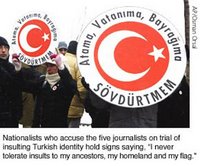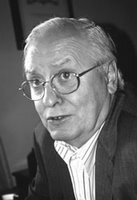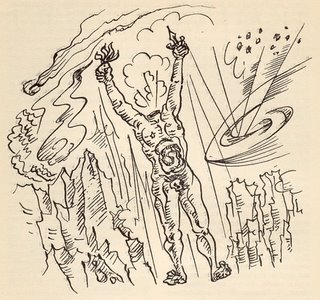Samuel Eliot Morison, a historian, a civilizer, a ship
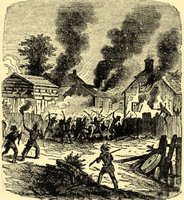
Ok, I'm going to tell this story backwards.
See if you have the patience to get through to the beginning.
There is or was, as of 2002 a ship in the Turkish navy called "Gokova." Now, the ship had been decommissioned from the U. S. Navy, and during its previous life it was named the U. S. S. Samuel Eliot Morison.
The Morison had been in the U. S. Navy from 1980--it had been built in the Bath, Maine shipyards in the late 70s. Among other weaponry, the Morison, a guided missile frigate, boasted a missile launcher and a rapid firing gun. During its time in the U. S. Navy, it was on various missions in the Caribbean and Eastern Pacific. Among other things, it was involved in several drug bust operations during which time it seized narcotics.
The ship was named for Rear Admiral Samuel Eliot Morison. Perhaps to some of you, this name may be familiar. If you've ever read any U. S. maritime history, it should. Also, if you've ever read any histories of colonial New England, once again it will likely be a familiar name.
Morison was perhaps one of the most famous historians of the twentieth century. He was a professor of History at Harvard for over 40 years; in addition to his own voluminous writing, he trained many of the subsequently famous scholars doing American history. His books--especially on maritime history--became best sellers. He won numerous awards and honors, including 2 Pulitzer Prizes and 2 Bancroft Prizes (given to historians). In writing his famous book on Columbus, Morison took to the the seas himself, refitting a boat and making Columbus's routes and ports of call the basis of some of his research.
During World War II, Morison was appointed the Official Historian of the U. S. Navy by Franklin Delano Roosevelt, and Morison went on to write a 15-volume work about U. S. Naval Operations during the war. He attained his rank in the Navy from these efforts, though he also saw active duty during his time as the Navy's Historian. In 1961, Morison won the Emerson-Thoreau Medal for "distinguished literary achievement." from the American Academy of Arts and Sciences. In 1964, Morison won the Presidential Medal of Freedom "as one of the great
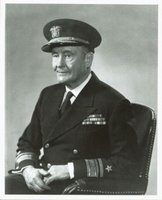 Americans whose life and works have made freedom stronger for all of us in our time." The medal was given to him by President Lyndon Baines Johnson. He was, also, Harvard's official historian, writing several different works, including a 3-volume text called "Three Centuries of Harvard: 1636-1936."
Americans whose life and works have made freedom stronger for all of us in our time." The medal was given to him by President Lyndon Baines Johnson. He was, also, Harvard's official historian, writing several different works, including a 3-volume text called "Three Centuries of Harvard: 1636-1936."When he died in 1976 (at the age of 88), he was regarded as perhaps the most influential historian in an American University during the 20th century. One review of a collected book of his essays after his death waxed eloquent about Morison's status as THE "master historian."
Why mention any of this? Here's why. In preparing for my course this semester on American Economic History, I decided to do some reading I had long avoided on the wars between the New England colonies and the Native Americans in the 17th century. Most importantly, I decided to read extensively on "King Philip's War," a war that has been described as the most destructive, in terms of numbers of people killed per thousand of the population (and this goes for both white colonists and natives), of any war ever fought by "Americans" on or off American soil. It is notorious on many accounts, not the least of which is the fact that the tribes that "lost" were subjected to extermination, slavery (being sold off to the West Indies), and outright ruin.
Now, the first "modern" book on this war was written by Douglas Edward Leach, a Harvard Ph.d. and a professor at Vanderbilt, at least when the book was published. The book was first published in 1958 under the title "Flintlock and Tomahawk: New England in King Philip's War." It has been described as the first and most complete history of the conflict written by a modern historian. All present books on King Philip's War pay homage to this book and use it freely, even when more contemporary writers diverge from Leach in his narrative and conclusions. Leach tells us that the impetus for writing the book was Morison. Indeed, he says in his Preface to the book that "it was [Morison] who convinced me that this book should be written; his inspiration and example lie behind every page." Leach was a student of Morison, and he explains that his interest in the subject was first stimulated in Morison's seminar at Harvard.
In fact, Morison was so important to the book that he wrote the Introduction for it. This is what I want to share with you. Each and every word that Morison wrote in support of Leach's own, justly famous, study. Please keep in mind who Morison was and also the probable year of this Intro's composition (1958):
"My friend Dr. Leach has written the first comprehensive history of King Philip's War to appear since the seventeenth century. Most historians, including myself, believe that it was the most severe of all the colonial Indian wars, subsequent to the 1622 massacre in Virginia. In view of our recent experiences of warfare, and of the many instances today of backward peoples getting enlarged notions of nationalism and turning ferociously on Europeans who have attempted to civilize them, this early conflict of the same nature cannot help but be of interest. It was an intensely dramatic struggle, decisive for the survival of the English race in New England, and the eventual disappearance of the Algonkian Indians.
Behind King Philip's War was the clash of a relatively advanced race with savages, an occurrence not uncommon in history. The conquering race (and this is as true of the Moslems and Hindus as of Christians) always feels duty-bound to impose its culture upon the native; the native in the process of absorbing it acquires the conquerer's vices and diseases as well, and in the end is either absorbed or annihilated, the only compromise being a miserable existence on a 'reservation.' The Algonkian Indians of New England, notably King Philip's father Massasoit, welcomed the Englishmen as an ally against their Indian neighbors and appreciated his t
 ools and firearms; but the Englishman expected them to take the whole of his culture, including Puritan theology, in one package. That was like expecting a Stone Age savage to be at home in a modern skyscraper apartment. The New England colonists tried hard to be fair and just to the natives; but their best was not good enough to absorb them without a conflict.
ools and firearms; but the Englishman expected them to take the whole of his culture, including Puritan theology, in one package. That was like expecting a Stone Age savage to be at home in a modern skyscraper apartment. The New England colonists tried hard to be fair and just to the natives; but their best was not good enough to absorb them without a conflict. Dr. Leach has told how and why this particular war happened; he has related the story of it, with all its desperate massacres, battles, and strategems. He gives a vivid picture of the conditions under which it was fought, and of the protagonists--Governor Winslow, Captain Church, Captain Moseley, Ninigret, Weetamoo the Squaw Sachem, Pomham, Monoco, and King Philip himself. He has described the tactics and the logistics by which the redskin was finally conquered. He has pulled no punches in his story of cruelty and vengeance on both sides; and the modern reader will discern many analogies to recent events. The treatment of the converted "praying" Indians was no worse than that of the United States to Japanese-Americans in World War II. The Reverend John Eliot pointed out that the harsh policy of killing prisoners or selling them into slavery would prolong the Indian war--an early instance of 'unconditional surrender.' When emotions are stimulated to the boiling point, as they are in desperate wars, Christians forget their religion and descend to the level of the brute fighting for his life. This is not only a military but a political and social history. The tactics and weapons of 1675 are of historical interest; but the policies and attitudes of Puritan and Indian are just as alive today, and as relevant, as those of World War II, or of the Peloponnesian War as described by Thuycidides."
The final touch is fitting. What better way to finish such a prologue than a refined gesture to the "birthplace" of western civilization and referencing, through the name of Thuycidides, the great literature and learning that has come with it.
I should add that one friend of Morison had described him as a man of great gentility. Indeed.
Jamar

